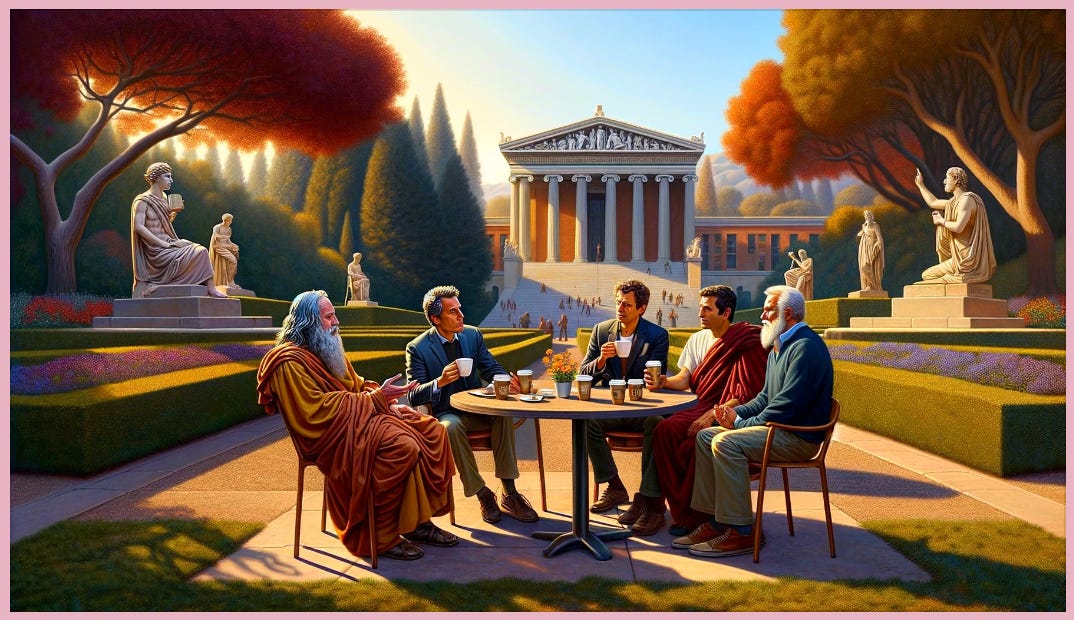NOTES: On Mid-21st Century Undergraduate Education, & Virgil's Prophecy of Jupiter: "Imperium sine Fine Dedi"
How universal are the human values of freedom & rights, anyway? & can or should there be universal human values? & how do we even begin to think about how we should think about such questions, & about the downstream question of what kind of human society (or societies) we should be trying to build? No, I do not have conclusions. But I do have notes—I seem to have more than 20,000 notes circling around this topic…
One of the very nice things about being at a university is that one does occasionally wind up sitting outside in the warm afternoon spring sun, drinking espresso drinks, and quoting the line from Virgilis Maro’s Æneid of the Prophecy of Jupiter to each other: “Imperium sine fine dedi…”—For these (Romans) I (Jupiter is speaking) set no limits, world or time/But make the gift of empire without end…
Iuppiter: At puer Ascanius, cui nunc cognomen Iulo
Additur,—Ilus erat, dum res stetit Ilia regno,—
Triginta magnos volvendis mensibus orbis
Imperio explebit, regnumque ab sede Lavini
Transferet, et longam multa vi muniet Albam.
Hic iam ter centum totos regnabitur annos
Gente sub Hectorea, donec regina sacerdos,
Marte gravis, geminam partu dabit Ilia prolem.
Inde lupae fulvo nutricis tegmine laetus
Romulus excipiet gentem, et Mavortia condet
Moenia, Romanosque suo de nomine dicet.
His ego nec metas rerum nec tempora pono;
Imperium sine fine dedi…Jupiter: Ascanius, to whom the name of Iulus
Now is added—Ilus while Ilium stood— Will hold the power for all of thirty years, Great rings of wheeling months. He will transfer His capital from Lavinium and make A fortress, Alba Longa. Three full centuries That kingdom will be ruled by Hector’s race, Until the queen and priestess, Ilia,
Pregnant by Mars, will bear twin sons to him. Afterward, happy in the tawny pelt
His nurse, the she-wolf, wears, young Romulus Will take the leadership, build walls of Mars, And call by his own name his people Romans. For these I set no limits, world or time, But make the gift of empire without end…
The point at issue was that Virgilius Maro and those who propagated his book really did create—among Roman society’s literate élite, or at least among a particular but intellectual subsection of that élite—a strong element of collective consciousness that had powerful and real results in influencing human action: the belief that Rome was (or ought to be) universal empire, not one of several roughly equivalent human civilizations, but the only real game in town—much like the attitude of Yankees fans toward the Red Sox, which in their estimation is not a real baseball team.
This Roman imperial élite attitude stood in contrast to the more usual view of literate élites in the western tip of Eurasia over the past 2000 years.

